As the U.N. opened its latest session, the United States co-sponsored with Canada, Germany, the Netherlands, and the United Kingdom a panel discussion on “The Human Rights Crisis in Xinjiang.”
The BBC has reported that evidence of the camps first came from satellite imagery. According to the Free Beacon’s Bill Gertz, there is a network of approximately 124 concentration camps run by the Beijing government.
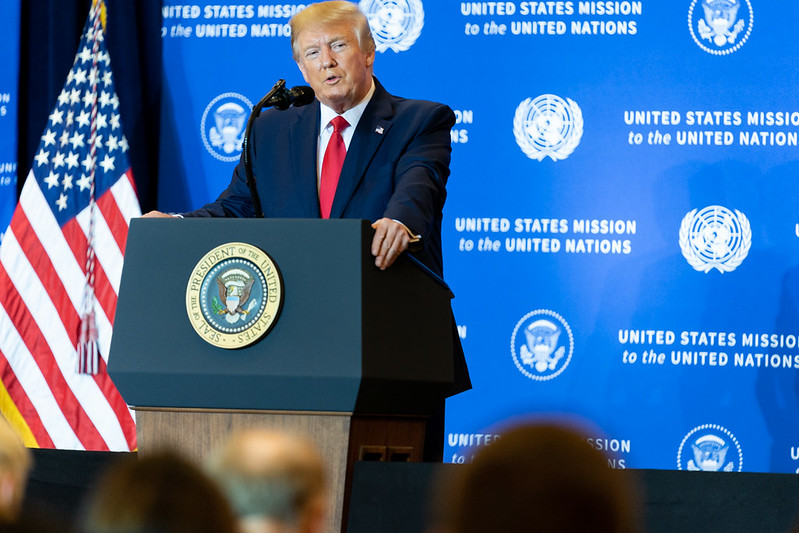
The several nations participating in the conference expressed deep concern about China’s ongoing repression campaign against Uighurs, ethnic Kazakhs, ethnic Kyrgyz, and members of other Muslim minorities in Xinjiang. They noted the mass detention of over one million individuals in internment camps since April 2017, and reviewed credible reports of deaths, forced labor, torture, and other cruel, inhuman, or degrading treatment taking place there.
U.S. Ambassador at Large for International Religious Freedom Samuel D. Brownback moderated the panel, which featured victims of China’s repression campaign, including a survivor of the camps and individuals who are fighting to learn the fate of missing or detained family members. They shared heartbreaking and deeply personal stories of their experiences and the abuses those in Xinjiang endure on a daily basis.
China was urged to release all those in the camps, and demonstrate respect for the human rights of all its people. Participants in the panel called on the United Nations to demonstrate leadership on this issue and to closely monitor China’s human rights abuses, including the repression of freedom of religion or belief.
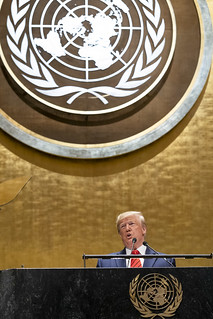
The U.S. emphasis was not limited to China. In conjunction with the opening of the U.N.’s latest session, the White House noted that America is placing special emphasis on religious freedom.
The National Association of Evangelicals reports that “The persecution of religious believers has become an increasingly tragic fact in today’s world. In many countries, moreover, Evangelical Protestants and Catholics have become special targets of reigns of terror initiated by authorities who feel threatened by Christian faith and worship. Such authorities, often motivated by anti-Western, anti-democratic ideologies, also persecute Christians as a means of threatening the freedom of all persons subject to their authority. Incidents of religious persecution are legion:
- In many Islamic countries, where militant and xenophobic Islamist movements seek to capture the soul of a historically tolerant Islamic faith, and where the demonization of Christians also serves to intimidate Muslims seeking freedom from repressive regimes.
- In China, Cuba, Laos, North Korea and Vietnam, where remnant Communist regimes feel threatened by persons whose Christian faith places them under an authority transcending governments, and where the persecution of Christians also serves to intimidate non-Christian dissenters.”
The President called on both international political and business leaders to work to protect religious freedom, and called for the end of all related persecution.
The State Department has also hosted two Religious Freedom meetings, during which more than 100 governments and religious leaders committed to fight religious persecution. The Administration is spearheading the International Religious Freedom Alliance, an alliance of nations dedicated to confronting religious persecution around the world. Earlier this year, the U.S. provided humanitarian aid to help Christians and Yazidis who suffered at the hands of ISIS and to help Rohingya Muslim refugees fleeing persecution.
In a “whole of government” approach, the Department of Justice is dedicating an additional $25 million to protect religious freedom and religious sites and relics, and has hosted summits on anti-Semitism.
According to the White House, Eighty-three percent of the world’s population lives in nations where religious freedom is threatened or banned. Jews, Christians, Muslims, Buddhists, Hindus, Sikhs, Baha’is, humanists, and non-believers alike—almost every group has been increasingly persecuted over the past decade.
Frank Vernuccio serves as editor-in-chief of the New York Analysis of Policy & Government.


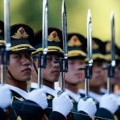

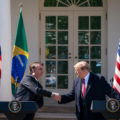
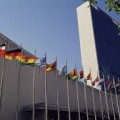











Follow Us